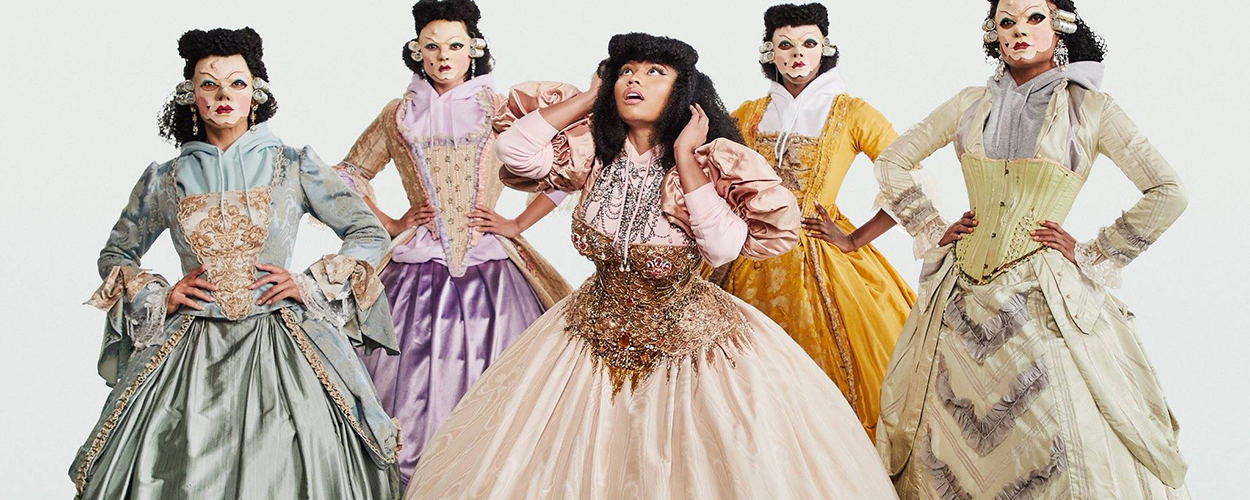This website uses cookies so that we can provide you with the best user experience possible. Cookie information is stored in your browser and performs functions such as recognising you when you return to our website and helping our team to understand which sections of the website you find most interesting and useful.
Artist News Business News Labels & Publishers Legal Top Stories
Nicki Minaj wins one element of her Tracy Chapman copyright dispute, but the wider case will go to a jury
By Chris Cooke | Published on Friday 18 September 2020

A Californian judge this week sided with Nicki Minaj over one key aspect of her copyright dispute with Tracy Chapman: the sampling of uncleared music behind closed doors in the studio definitely constitutes fair use. However, the other key element of the case – focused on how Minaj’s unreleased track with an uncleared Chapman sample got to a New York radio DJ – will proceed to a full jury hearing.
This dispute relates to a track Minaj intended to include on her 2018 album ‘Queen’. Said track, called ‘Sorry’, sampled Chapman’s ‘Baby Can I Hold You’. But Minaj’s people couldn’t get clearance on the use of the sample, so ‘Sorry’ was dropped from ‘Queen’ at the very last minute. However, that didn’t stop New York-based DJ Funk Flex, aka Aston Taylor, playing the track on his radio show.
Chapman then sued Minaj accusing her of infringing the copyright in ‘Baby Can I Hold You’ by “creating an illegal derivative work” and “distributing that work”.
Minaj’s response to the lawsuit mainly focused on the former of those claims. Her lawyers argued that copying and editing uncleared samples when creating new records in the studio should qualify as ‘fair use’ under US copyright law and therefore could not constitute copyright infringement.
They presented mainly practical arguments to back up their fair use claim. First, the use of uncleared samples in the studio is common practice in the music industry and to suggest that doing so infringes copyright would have a major impact on the creative process of many artists.
And secondly, whenever you seek clearance for a sample from an artist or songwriter, they nearly always want to know what snippet of their song is being sampled and how it will be used in the new track. Therefore suggesting clearance should be sought before the sampling artist starts work on their sample-featuring track is stupid.
Responding to those actually pretty sensible arguments, Chapman’s lawyers said that the defence’s interpretation of the fair use principle was fundamentally flawed, and – while they may be able to back up their arguments with examples of music industry practice – they are simply not backed up by the case law.
However, judge Virginia A Phillips does not agree. This week she ruled that the Minaj side were right to say that the use of uncleared samples behind closed doors was fair use.
She said “artists usually experiment with works before seeking licences from rightsholders … A ruling uprooting these common practices would limit creativity and stifle innovation within the music industry. This is contrary to copyright law’s primary goal of promoting the arts for the public good. This factor thus favours a finding of fair use”.
So, a win for Minaj. But what about the fact that ‘Sorry’, although not released, was played on the radio? That’s the “distributing the work” element of the lawsuit and, for the Chapman side, is arguably the more important aspect of this dispute. There may well be grounds for copyright infringement there, though only if it can be proven that Minaj herself did the distributing.
The Chapman side’s most recent legal filing presented various social media and text messages that they said proved that it was definitely Minaj who sent Taylor a copy of ‘Sorry’, despite her being fully aware that Chapman had declined to clear the sample contained within it.
However, the Minaj side disputes those claims, saying that Chapman’s legal team have made incorrect inferences from the messages they included in their legal filing, and presented said messages in the wrong order in a way that strengthens what they have incorrectly inferred.
Minaj denies sending the track to Taylor, adding that plenty of other people behind the scenes had a copy of the track and could therefore have leaked it to the DJ. For his part, Taylor says he got the track from a blogger and that when he wrote on Twitter that “Nicki gave me something”, he was simply trying to hype up the fact he was going to play the unreleased track on his show.
Therefore this side of the dispute is a definite “he said/she said” scenario that only a jury can deliberate on, said the judge. “These factual disputes raise triable issues of material fact that must be resolved by a jury”, Phillips added.
And so, while we now know for certain that messing around with uncleared samples in the studio is fair use, the wider Chapman v Minaj dispute continues.





